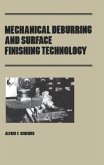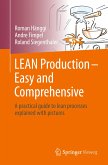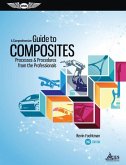Finish Manufacturing Processes are those final stage processing techniques which are deployed to bring a product to readiness for marketing and putting in service. Over recent decades a number of finish manufacturing processes have been newly developed by researchers and technologists. Many of these developments have been reported and illustrated in existing literature in a piecemeal manner or in relation only to specific applications.
For the first time, Comprehensive Materials Finishing, Three Volume Set integrates a wide body of this knowledge and understanding into a single, comprehensive work. Containing a mixture of review articles, case studies and research findings resulting from R & D activities in industrial and academic domains, this reference work focuses on how some finish manufacturing processes are advantageous for a broad range of technologies. These include applicability, energy and technological costs as well as practicability of implementation. Thework covers a wide range of materials such as ferrous, non-ferrous and polymeric materials.
There are three main distinct types of finishing processes: Surface Treatment by which the properties of the material are modified without generally changing the physical dimensions of the surface; Finish Machining Processes by which a small layer of material is removed from the surface by various machining processes to render improved surface characteristics; and Surface Coating Processes by which the surface properties are improved by adding fine layer(s) of materials with superior surface characteristics. Each of these primary finishing processes is presented in its own volume for ease of use, making Comprehensive Materials Finishing an essential reference source for researchers and professionals at all career stages in academia and industry.
For the first time, Comprehensive Materials Finishing, Three Volume Set integrates a wide body of this knowledge and understanding into a single, comprehensive work. Containing a mixture of review articles, case studies and research findings resulting from R & D activities in industrial and academic domains, this reference work focuses on how some finish manufacturing processes are advantageous for a broad range of technologies. These include applicability, energy and technological costs as well as practicability of implementation. Thework covers a wide range of materials such as ferrous, non-ferrous and polymeric materials.
There are three main distinct types of finishing processes: Surface Treatment by which the properties of the material are modified without generally changing the physical dimensions of the surface; Finish Machining Processes by which a small layer of material is removed from the surface by various machining processes to render improved surface characteristics; and Surface Coating Processes by which the surface properties are improved by adding fine layer(s) of materials with superior surface characteristics. Each of these primary finishing processes is presented in its own volume for ease of use, making Comprehensive Materials Finishing an essential reference source for researchers and professionals at all career stages in academia and industry.








